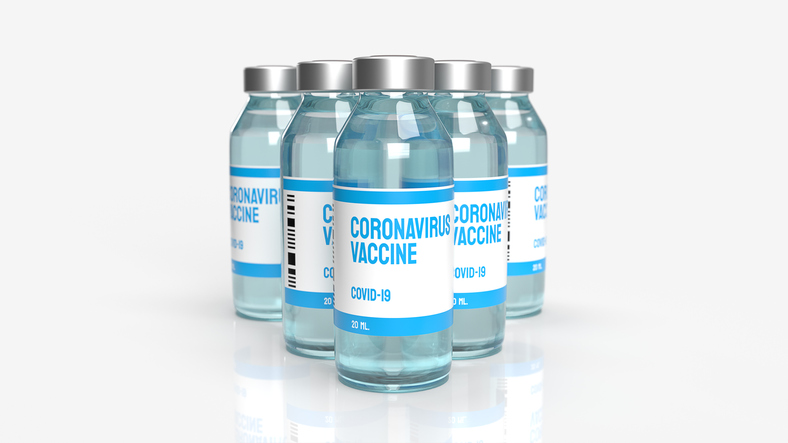This study aims to investigate the effect of recent influenza and pneumococcal vaccines’ administration on the development of COVID-19 infection in kidney transplant recipients during the pandemic. The full article in ScienceDirect.
Robotic kidney cancer surgery shows desirable outcomes in study
Robotic surgery compared favorably with standard surgery in a review and analysis of data from 1,375 patients who underwent surgery to remove cancer from the kidney and inferior vena cava. The inferior vena cava (IVC), the body’s biggest vein, carries blood out of the kidneys back to the heart. Cancer can infiltrate this vein and advance to the liver and heart. Robotic IVC thrombectomy resulted in fewer blood transfusions and fewer complications overall in patients compared to standard, open IVC thrombectomy. The findings should compel further studies of the benefits of robotic IVC thrombectomy. Read the study in Science Daily.
Cardiovascular Outcomes: Kidney Transplant Patients With ADPKD
High morbidity and death rates are caused by cardiovascular disease in people with renal failure. Systemic illness, autosomal dominant polycystic kidney disease (ADPKD) causes a number of cardiac problems. There are few details on the cardiovascular characteristics and development of ADPKD patients receiving kidney transplantation (KT). Read more in Physician’s Weekly.
Creating ‘universal’ transplant organs: New study moves us one step closer.
Scientists successfully converted donated lungs into “universal” transplant organs in a proof-of-concept experiment. That means, theoretically, the lungs could be transplanted into any recipient, regardless of their blood type, as long as the organs were the appropriate size.
In the new study, published Wednesday (Feb. 16) in the journal Science Translational Medicine, the researchers ran experiments on the universal lungs in an ex vivo lung perfusion (EVLP) device, which keeps lungs alive outside the body. Within the next year-and-a-half, the study authors plan to test such organs in a clinical trial with human recipients, Dr. Marcelo Cypel, the surgical director of the Ajmera Transplant Centre, a professor of surgery at the University of Toronto and senior author of the study, told Live Science. Read the full story.
If You’ve Done This, Your Risk of COVID After Vaccination Is 82 Times Higher
“A study published July 23 in the Transplantation journal looked at COVID infections among transplant recipients. The researches analyzed data from more than 18,000 fully vaccinated people who had transplants for large organs from 17 transplant centers across the U.S. There were 151 breakthrough infections among the patients studied. According to the researchers, the risk of getting COVID after vaccination is 82 times higher for people who have had a transplant.
Out of the transplant breakthrough infections, 87 people were also hospitalized and 14 died. According to the study, this translates to a 485 times higher risk of breakthrough infection with associated hospitalization and death for transplant recipients. Per the CDC, most people who get breakthrough infections should not expect severe complications.
Study co-author Dorry Segev, MD, a transplant surgeon with Johns Hopkins University, told Science magazine that this is the first study to provide clinical evidence across multiple hospitals that transplant recipients are less protected by the vaccine.”
Read the full article, here.
Antibody Response After a Third Dose of the Vaccine in Kidney Transplant Recipients With Minimal Serologic Response to 2 Doses
“Studies have reported low seroconversion rates (58% after the second dose) in solid organ transplant recipients who received a messenger RNA (mRNA) SARS-CoV-2 vaccine.1,2 Based on this evidence, the French National Authority for Health issued a recommendation in April 2021 to administer a third vaccine dose in immunosuppressed patients who did not respond after 2 doses. We examined the antibody responses of kidney transplant recipients who did not respond to 2 doses and received a third dose (100 μg) of the mRNA-1273 vaccine (Moderna).
Methods
All kidney transplant recipients followed up in the outpatient Kidney Transplantation Department of Strasbourg University Hospital between January 20, 2021, and June 3, 2021, with a negative history for COVID-19 and SARS-CoV-2 antispike IgG levels less than 50 arbitrary units (AU)/mL on the day of the first vaccine injection and 1 month after the second dose were included. All patients received a third vaccine dose between April 9, 2021, and May 12, 2021. The study protocol was approved by the local ethics committee and written informed consent was obtained.”
Learn more, here.
MAYO CLINIC STUDY EXPANDS CRITERIA TO BE A LIVING KIDNEY DONOR
Mayo Clinic says the pool of people who can be living kidney donors has expanded following the results of a recent study. Doctors say the results can help save more lives.
Previously transplant physicians were concerned about transplanting kidneys from patients with high blood pressure because of the possible long-term health impacts to them while living with just one kidney.
The study from Mayo Clinic included more than 100 patients and was conducted over 20 years. Dr. Mark Stegall, the Professor of Surgery at Mayo Clinic Rochester, says researchers found certain individuals with controlled hypertension can safely donate a kidney.
Read more, here.
Antibody Response to 2-Dose SARS-CoV-2 mRNA Vaccine Series in Solid Organ Transplant Recipients
“Transplant recipients without prior polymerase chain reaction–confirmed COVID-19 were recruited from across the US to participate in this prospective cohort through a digital campaign. Those who completed the 2-dose SARS-CoV-2 mRNA vaccine series between December 16, 2020, and March 13, 2021, were included and followed up through April 13, 2021. As described previously,3 semiquantitative antispike serologic testing was undertaken with the Roche Elecsys anti–SARS-CoV-2 S enzyme immunoassay, positive cutoff of at least 0.8 U/mL, which tests for the receptor-binding domain of the SARS-CoV-2 spike protein, or the EUROIMMUN enzyme immunoassay, positive cutoff of at least 1.1 arbitrary units, which tests for the S1 domain of SARS-CoV-2 spike protein, both key measures of humoral immune response.4,5 This study was approved by the Johns Hopkins institutional review board; participants provided informed consent electronically.
The proportion of patients who developed a positive antibody response was assessed with an exact binomial confidence interval. The Fisher exact test was used to compare categorical variables, such as antimetabolite immunosuppression, and the Kruskal-Wallis test for continuous variables. All tests were 2-sided with α = .05. Analyses were performed using Stata 16.1/Windows.”
See the full study results, here.
Outcomes among Transplant Recipients Hospitalized Due to COVID-19
“Due to chronic immunosuppression as well as the presence of numerous comorbidities, the risk of developing severe COVID-19 may be high in kidney transplant recipients. Researchers in the United States, Italy, and Spain conducted a retrospective cohort study to examine the clinical outcomes among kidney transplant recipients to identify predictors of poor clinical outcomes. Results of the study were reported in the American Journal of Transplantation [2020;20(11):3140-3148].
The study was led by Paolo Cravedi, MD, PhD, division of nephrology, department of medicine, Icahn School of Medicine at Mount Sinai, New York, New York. The cohort included 144 kidney transplant recipients who were hospitalized due to COVID-19 at 12 transplant centers in North America and Europe. The 12 centers were participating in the TANGO International Transplant Consortium. All kidney transplant recipients ≥18 years of age with a functioning allograft who were admitted to a hospital between March 2 and May 15, 2020, were included.”
Read the full study, here.
COVID-19 after kidney transplantation: Early outcome and renal function following antiviral treatment
Highlights
- During COVID-19, organ transplant recipients develop all forms of the disease
- This Romanian centre has higher prevalence but similar outcome with other European centres
- Mild and moderate COVID-19 has excellent patient and graft short-term outcome
- Targeted antiviral therapies do not seem to impair kidney graft function
Download the full paper, here.






